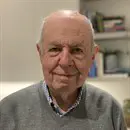
Israeli Prime Minister Yair Lapid has finally emerged from the cocoon of silence that has enveloped all current 120 Knesset members – choosing to reject a solution emanating from Saudi Arabia on 8 June calling for the merger of Jordan, Gaza and part of the 'West Bank' into one territorial entity to be called the Hashemite Kingdom of Palestine (aka new Saudi Solution).
Lapid has opted instead to continue his longstanding support for the United Nations 29 years-old failed solution calling for the creation of a new State of Palestine between Israel and Jordan for the first time in recorded history (aka old United Nations Solution)
Lapid’s support was however conditional:
“We have only one condition: That a future Palestinian state will be a peaceful one. That it will not become another terror base from which to threaten the well-bring, and the very existence of Israel”
It is unclear whether Lapid had forgotten or had abandoned another condition which he had stipulated - when he told 26 European Union Foreign Ministers at the European Union Foreign Affairs Council on 11 July that:
“It is no secret that I support a two-state solution. Unfortunately, there is no current plan for this. However, there is one thing we all need to remember. If there is eventually a Palestinian State, it must be a peace-loving democracy”.
With conditions such as these, the likelihood of such an Palestinian State ever emerging is literally impossible to achieve.
Nevertheless Lapid has had the courage of his convictions to finally state the [hallucinatory] policy he will adopt to try to end a conflict that has defied resolution for the last 100 years.
At least voters in the upcoming Israeli elections will know what to expect if Lapid becomes Israel’s next Prime Minister on 1 November.
The other 119 Knesset members – and those seeking to replace any of them who are retiring - continue to keep voters in the dark on what their policy will be in trying to achieve the long sought for peace to end the Jewish-Arab conflict.
The emergence of the Saudi Solution offered these reticent politicians a real choice – yet not one of them has had the intestinal fortitude finally – if belatedly and unrealistically – displayed by Lapid.
The Saudi Solution – in distinct contrast to the United Nations Solution – offers Israel the following concessions before negotiations are even commenced on implementing the proposal:
· -Jerusalem will be the capital of Israel only
· - No new State will be created between Israel and Jordan
· - The right of return by Palestinian Arabs to Israel will be abandoned
· -Jewish sovereignty in part of Judea and Samaria ('West Bank') will be recognised for the first time in 3000 years
· -Saudi Peace proposals made in 1981 and 2002 that were unacceptable to Israel will be superseded.
The universal silence by Israeli politicians on the Saudi Solution since its publication almost four months ago is shameful.
One cannot expect every Israeli politician to embrace the Saudi Solution, but then they should publicly state their opposition.
But is there not one Israeli politician – Jew or Arab – other than Lapid - prepared to express his own opinion on conducting negotiations to determine if agreement can be reached on the Saudi Solutions’ groundbreaking proposals?
In particular why have the leaders of sixteen of the major Israeli political parties contesting the elections – Netanyahu, Gantz, Sa’ar, Smotrich, Ben-Gvir, Deri, Litzman, Gafni, Shehadeh,Odeh, Tibi, Michaeli, Galon, Abbas, Shaked, Liberman and Hendel - refused to comment on the Saudi Solution since its publication?
Hopefully these leaders - like Lapid – will break their silence on the Saudi Solution well before November 1.
Leaders lead from the front – not cower and huddle silently together behind the voters whose votes they seek.
Author’s note: The cartoon — commissioned exclusively for this article — is by Yaakov Kirschen aka “Dry Bones”- one of Israel’s foremost political and social commentators — whose cartoons have graced the columns of Israeli and international media publications for decades.
